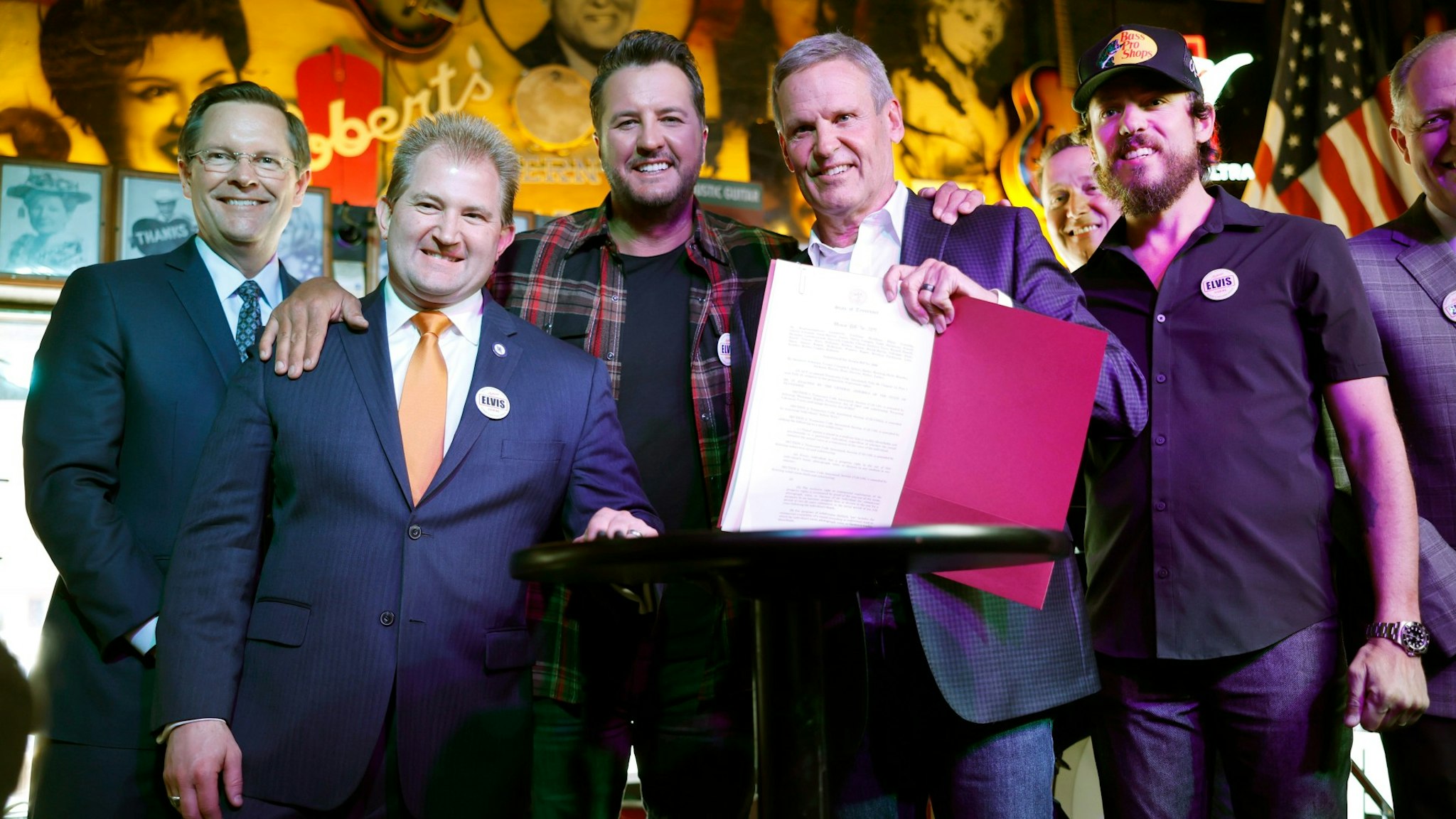 Photo by Jason Kempin/Getty Images for Human Artistry Campaign
Photo by Jason Kempin/Getty Images for Human Artistry Campaign
Country music stars Luke Bryan and Chris Janson celebrated a move by Tennessee after it passed a law protecting musicians against works of music using their voice created by artificial intelligence.
On Thursday, Bryan and Janson were among those who joined Tennessee Governor Bill Lee who signed the ELVIS Act — Ensuring Likeness Voice and Image Security Act — which protects artists from the unauthorized use of their voice, name, image, and likeness.
“What an amazing stance or precedent to set for the state of Tennessee to get in front of this, to be the leaders of this,” Bryan told the crowd at the Nashville honky tonk. “And to show artists like myself … that our state protects us and what we are about, and what we work so hard for.”
“I’ve just gotten to where stuff comes in of my voice on my phone, and I can’t tell it’s not me,” the country singer added, per the Tennessean.
Janson told the crowd that AI is a serious thing and can effect whether an artist is able to make a living.
Tennessee is now the first state to enact AI protections for musicians after Gov. Bill Lee signed the ELVIS Act, or the Ensuring Likeness Voice and Image Security Act into law with Luke Bryan and Chris Janson by his side. pic.twitter.com/pabwyTBrbc
— USA TODAY Life (@usatodaylife) March 22, 2024
“People can’t come to shows and hear live music if we don’t put a stop to the fakeness,” Janson said. “We came to a real city to make real music for real people.”
“The darkness in the AI world always comes to light with realness and reality,” he added. “What do they say in this town? The best song always wins.”
CLICK HERE TO GET THE DAILYWIRE+ APP
In a press release, Lee reflected on how the old law only dealt with name, image, and likeness, but this new one “specifically address new, personalized generative AI cloning models and services that enable human impersonation and allow users to make unauthorized fake works in the image and voice of others.”
Speaking at the bill signing, Mitch Glazier, Chairman and CEO of the Recording Industry Association of America (RIAA), praised the bill.
“I thought that this bill did a great job of giving guidance about what those First Amendment protections are, but very importantly, it said if it’s protected by the First Amendment, that’s fine,” Glazier said. “But if it’s not protected by the First Amendment, Tennessee is going to act to protect artists. I thought that was a great line.”
The law, which becomes the first one of its kind in the country, will allow artists and license holders to sue for damages, USA Today noted. And those who are violation of the law can be charged with a Class A misdemeanor.
Source link

